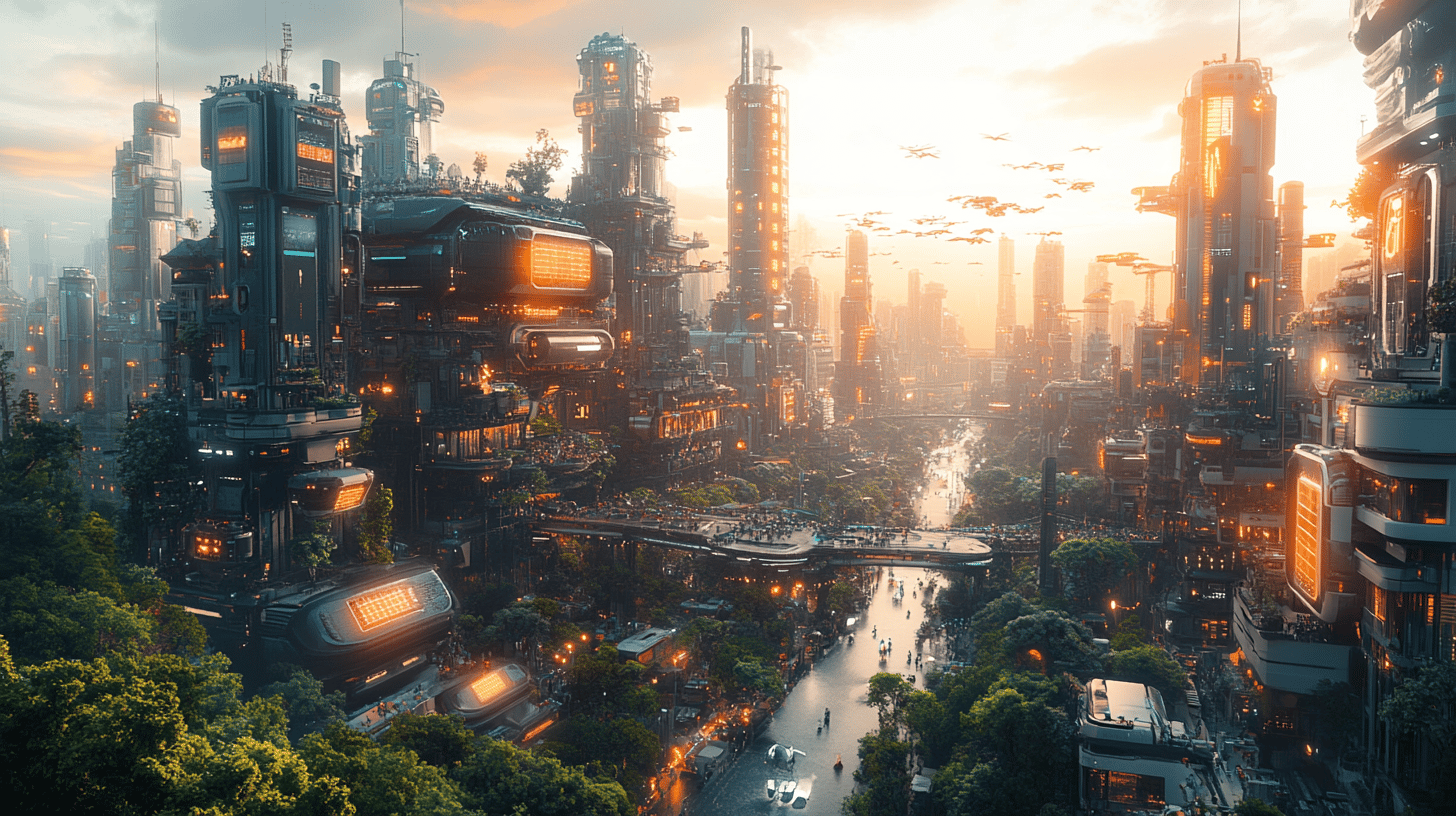Technology is advancing at a rapid pace, and each year brings innovations that promise to not only revolutionize industries, but also change the way we interact with the world around us. In 2025, many of these innovations have begun to gain prominence, showing the path that technology is taking. In this post, we will explore some of the most impactful innovations expected for this year, their applications, and how they can influence our daily lives.
1. Artificial Intelligence and Machine Learning
Artificial Intelligence (AI) has been one of the most discussed areas in recent years, and in 2025, its presence is even stronger. Machine learning, a sub-area of AI, allows algorithms to learn and grow over time, making machines more efficient.
Personalization is becoming a major focus. On social media platforms, e-commerce, and streaming services, algorithms are able to understand users’ preferences to provide highly accurate recommendations. In addition, AI is also being used in healthcare for faster and more accurate diagnoses by analyzing large amounts of medical data.
2. Augmented and Virtual Reality Technologies
Augmented Reality (AR) and Virtual Reality (VR) are increasingly being integrated into a variety of industries, from entertainment to education and corporate training. By 2025, companies like Facebook and Google are expected to launch new devices that will make immersion in virtual environments even more realistic.
Education, for example, can be revolutionized with the use of AR and VR technologies. Students will be able to simulate complex scientific experiments without the need for physical laboratories, simplifying learning in several areas.
3. Internet of Things (IoT)
The Internet of Things is expanding rapidly, connecting everyday devices to the internet. By 2025, smart homes are expected to become commonplace. Appliances like refrigerators, stoves, and security systems will be interconnected, allowing you to control everything from your smartphone.
Not only does this provide greater convenience, but it also optimizes energy consumption. Imagine a home that automatically adjusts its temperature or energy based on your usage pattern! The impact on sustainability can also be significant, reducing the waste of resources.
4. Biotechnology and Personalized Health
Biotechnology is advancing rapidly, and by 2025, we expect to see the rise of gene therapies and personalized medicine. This means that medical treatments can be tailored to each patient’s specific genetic profile.
With the use of technologies such as CRISPR, it is possible to carry out genetic modifications to treat diseases that were previously considered incurable. Healthcare is becoming increasingly proactive, with diagnoses and treatments initiated based on the patient's genetic profile and not just on observed symptoms.
5. 5G and Advanced Connectivity
The implementation of the 5G network is already impacting the way we communicate and interact with technology. By 2025, this technology promises to further accelerate internet connections, providing greater speed and lower latency.
This will enable unprecedented fluidity for real-time communication, benefiting services such as high-quality streaming, telemedicine and autonomous vehicles, which depend on a real-time connection to operate safely.
6. Sustainability and Green Technologies
Environmental awareness is growing, and technological innovations are not losing focus on sustainability. By 2025, new green solutions and technologies are emerging to help combat climate change.
This includes using solar and wind energy from more efficient devices. Technologies that help with recycling and water conservation are also becoming commonplace. In addition, 3D printing can be used to create sustainable solutions, from housing construction to everyday products.
7. Automation and Robotics
Automation is becoming increasingly common in a variety of industries, from manufacturing to customer service. By 2025, robotics is expected to become even more prevalent in the workplace, with robots taking on roles ranging from repetitive tasks to complex, thought-provoking tasks.
Companies are investing in robots that can collaborate with employees, increasing efficiency and allowing humans to focus on more creative and strategic activities.
8. Blockchain and Digital Security
Blockchain technology is solidifying itself as a valuable tool for digital security, not just in cryptocurrencies but in a variety of applications that require data security and transparency. By 2025, the technology is expected to be widely used in digital identity management, supply chain tracking, and contract security.
Security is a constant concern in an increasingly digital world. Therefore, blockchain-based solutions are seen as an effective response to fraud and data theft, increasing user confidence in digital systems.
Conclusion
Technological innovations in 2025 are shaping a future that prioritizes efficiency, sustainability, and improved quality of life. With the integration of artificial intelligence, biotechnology, and automation, many aspects of our lives are expected to be transformed. The way we communicate, learn, work, and care for our health will be intrinsically linked to these technologies.
With that in mind, it is crucial that individuals and companies stay up to date and prepared to ride the wave of these innovations. Technology cannot be seen as just a tool, but as an ally in building a better future. Stay tuned and get ready for what’s to come! Share your opinions and expectations about these innovations in the comments below!



